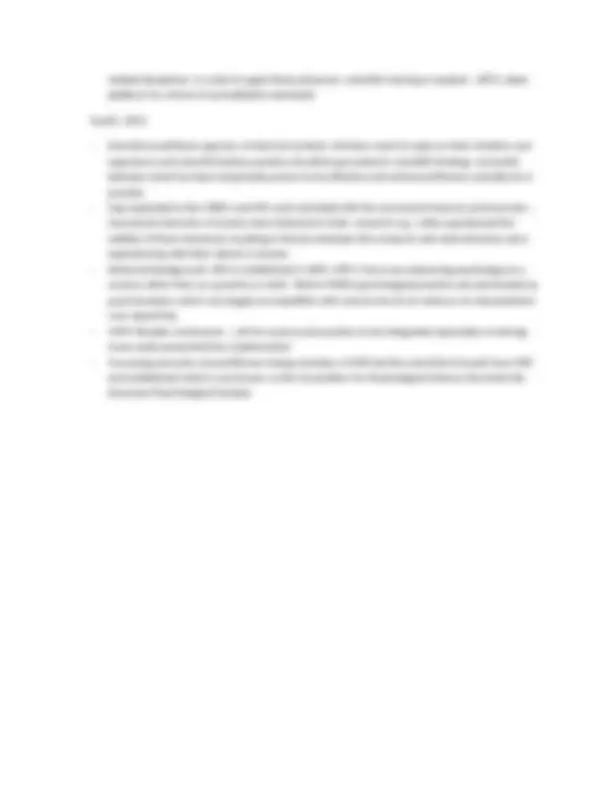
Baker et al., 2009
- Health care crisis Managed care increasing accountability and psychology’s need to prove our
treatments as efficacious and thus, worthy of reimbursing – control is reduced on the part of the
provider and consumer and is increasingly left in the hands of third-party insurers.
- While research has shown treatments to be effective, clinical psychologists have yet to proffer
empirical data that is sufficient to justify their use- ambivalence due to aversion to viewing
psych as a science and poor scientific training- tend to rely on clinical experience (over scientific
evidence) when selecting appropriate interventions with clients.
- As a result, resemble medical field when was stuck in the prescientific phase – i.e., pre-scientific
reform in the 1900s
- One way to address this is to refine the accreditation system such that it requires high standards
of scientific training in doctoral programs. – will serve to accomplish fundamental goals to
develop and apply scientific knowledge to guide the optimal treatment of individuals with
mental health needs.
- EST’s are cost-effective- will help reduce the dept accrued due to health care costs at a national
level
- Psychologists are being relegated to the background- increased reliance on physicians or lesser
paid helping professionals e.g., social workers. – to survive, field is in need of a reform
- 4 criteria for evaluating treatments 1) efficacy- IV 2) effectiveness- EV 3) cost-effectiveness –
varies across populations and problems as well as perspectives 4) scientific plausibility (clear
substantive evidence of the mechanisms through which the treatment operates)- will continue
to be important moving forward.
- Efficacy and effectiveness- false dichotomy- along a generalizability continuum – need both and
treatments must be shown to be effective in multiple settings and with multiple populations
- Clinical psychologists need to become part of the conversation taking place about the cost
effectiveness of interventions and determining the best outcomes with which populations and
under which circumstances
- Good news- some treatments have been proven effective (e.g. CT and CBT) bad news- clinical
psych has not capitalized on this information and has failed to develop as an applied science.
- Like early medicine- clinical psych is based on a credential system wherein credentials are
equated with competence and the physician of the past (and clinical psychologist currently)
upon receiving appropriate credentials (MD) would be granted full autonomy over his/her
practice. Clinical psychologists need to make the shift that medicine did- toward the more
accountability-based model of procedure-based practice.
- APA needs to revamp standards for accreditation based on need for scientific training to
become a priority now more than ever before- burgeoning of psyd programs reflects movement
away from research and science in tomorrow’s professionals- problem in light of managed care-
need for public distinctions in terms of who has been adequately trained to apply scientific
evidence and who hasn’t
- Some advances- Academy of Psychological Clinical Science- recognition of programs with
intensive scientific training and promoting integration and synergy amongst clinical psych and










